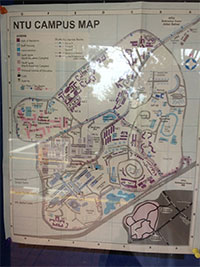Is the median monthly wage S$3,000 for Singaporeans high?
 The following opinion expressed by an editor in The Straits Times newspaper earlier this month grabbed my attention. The following opinion expressed by an editor in The Straits Times newspaper earlier this month grabbed my attention.
He wrote: "Singapore's median income of $3,000 per month is fairly high if converted to local currencies of neighbouring countries such as Malaysia, the Philippines, India and China. Does the average Singaporean worker deserve this premium?".
Here's the subsequent feedback from readers that touched a nerve with me:
"Are we really more analytical, creative, articulate and productive than our Asian counterparts, let alone those in the developed countries of Switzerland and Germany?"
"For a start, many local graduates... have a hard time conversing in good English... Because of this, they generally tend to be poor communicators and lack the confidence to interact in group situations"
"Many Singaporeans looked great on paper but had great difficulty with case interviews where one needs to think on one's feet"
"Singapore is not a developed country in the sense of Japan or Germany or Switzerland where the average worker is well-trained and of high quality..."
Is this really so?
The Straits Times editor said that these were the views of foreigners with more than 10 years' working experience in Singapore.
A email from a German was also mentioned. In it, the head of a German MNC raised a similar concern, pointing out the lack of drive of Singapore workers compared with those of other countries. He has worked previously in his home country Germany, in China and now Singapore.
German workers, he said in his email, had made a dramatic turnaround in the last decade, shedding the label they once wore as the sick man of Europe after suffering many years of a sluggish economy incurred from unification with East Germany.
In his view, if there was a hunger index for workers, that of German and Chinese workers would be moving upwards - they were getting hungrier, with the Chinese shooting off the charts in the index.
By contrast, the chart for Singapore workers moves in the opposite direction, he says.
Not only the expats, but local Singaporean managers who run SME businesses also give similar comments: It is not so easy to recruit Singaporeans who meet the managements' expectations. Their work attitude and skill level sometimes turn out to be disappointing.
Working here in Singapore, we are proud of the outstanding economic growth in the past years. Does the quality of our labour deserve such criticism?
The Straits Times editor concludes that fundamental changes both in the economy and in the education and training of Singaporeans are required as there are no quick fixes or easy solutions for Singapore.
He said: "That's why (proposed) changes in the schools to make students less obsessed with doing well in exams and better at learning how to acquire skills and knowledge relevant in today's fast changing world are so important.
"Learning how to learn, whatever the subject, possessing deep capabilities in the jobs you do, being able to communicate well, having a lively interest and pride in what you're doing - these are the attributes of a successful First World workforce".
As a parent with a child, I personally hope the education system in Singapore can be transformed to grow the talents not only with high scores in exams but also with comprehensive knowledge and skills for a better future.
What is your opinion? How do Singaporeans, Japanese and other foreigners in your company compare?
|

 The following opinion expressed by an editor in The Straits Times newspaper earlier this month grabbed my attention.
The following opinion expressed by an editor in The Straits Times newspaper earlier this month grabbed my attention.
 I visited NTU (Nanyang Technological University) recently. It was like one big town instead of what we usually visualize a university to be.
I visited NTU (Nanyang Technological University) recently. It was like one big town instead of what we usually visualize a university to be.

